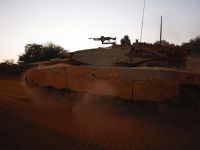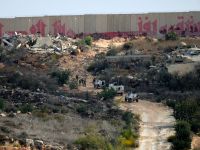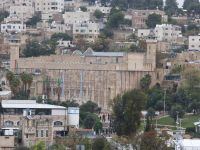Albawaba.com
Cairo
The preparatory meeting of the Arab foreign ministers, which ended late Thursday by drafting the final communiqué of the emergency meeting, will on Saturday and Sunday discuss the three-week violence in the Palestinian territories. Most of the Arab delegations showed support to the moderate Egyptian and Saudi proposals, rather than the radical positions taken by Syria, among other Arab states that called for cutting all links with the Jewish state, using oil to press US and Israel for reactivation of the peace process and reinvigorating laws stipulating boycott of Israel.
The Syrian proposals were supported by Iraq, Lebanon and Palestine, according to well-informed sources. Meanwhile, Egypt suggested that Israel be given a chance to return to peace negotiations before the Arabs take practical steps against it. But according to the Saudis, it will be enough to immediately cease diplomatic and commercial ties between Arab countries not involved directly in the peace process with Israel, while countries who are peace partners with Israel can take the same measure at a later stage if Israel does not prove its commitment to peace.
The sources told Albawaba.com that they expect the Saudi proposals to be adopted by the summit with leaving the door open for the participants to reject them.
It was not confirmed whether Libya will boycott the summit, but Libyan Leader Muammar Kadhafi will not personally attend the meeting.
Kadhafi had disclosed a first draft of the final statement on a TV show last week, and accused the Arab leaders of not being up to the “expectations of the Arab masses.” However, the Libyan delegation to the foreign ministers’ meeting did not adopt a radical stand as was expected.
It was proposed in the draft statement, which Albawaba had access to, that an Arab fund will be set up to provide financial support to the Palestinians.
The foreign ministers' proposals also called for a "fund or mechanism to provide financial aid to support the Palestinian resistance and lighten the burden of the siege on the (Palestinian) territories."
More than 110 Palestinians have died since September 28 when violence erupted following a visit by Israeli opposition leader Ariel Sharon to the Al-Aqsa mosque in Jerusalem.
The Arab leaders will use a strongly phrased language in condemning the Israeli practices against the Palestinians, its violations of international resolutions and conventions, and for the excessive use of force against demonstrators in Palestine.
They will also demand the UN Security Council to set up an international commission of inquiry into the bloody events, and a special court to try Israeli leaders “who committed the massacres” as criminals of war.
The final communiqué will also stress that east Jerusalem is an Arab occupied land and that there will be no resolution to the conflict without settling the issue of Jerusalem.
Clashes between the Israeli military and Palestinians in the West Bank and Gaza continued Friday despite appeals for calm following the Sharm el-Sheikh summit, resulting in the death of 10 Palestinians and the injury of 280.
© 2000 Al Bawaba (www.albawaba.com)







